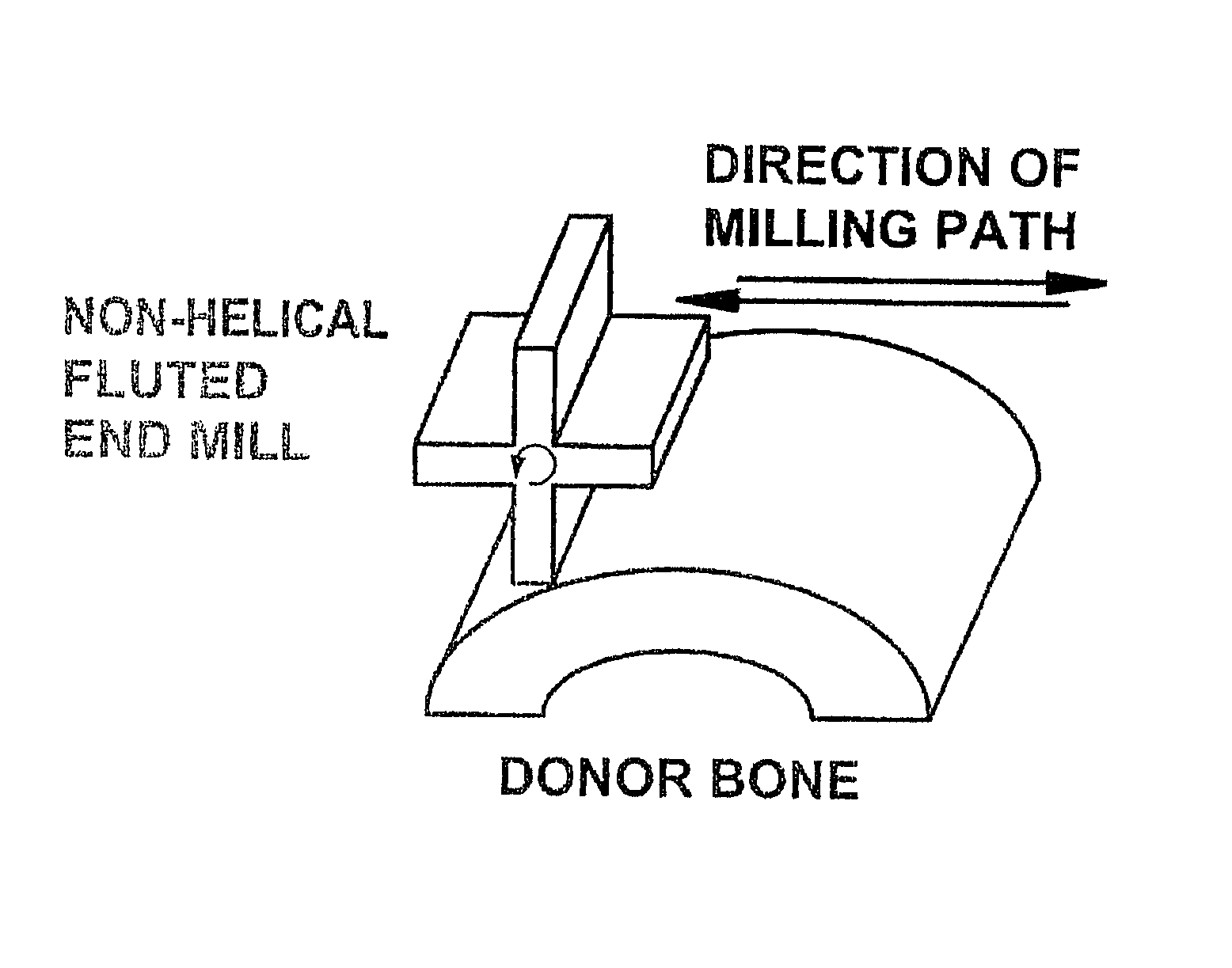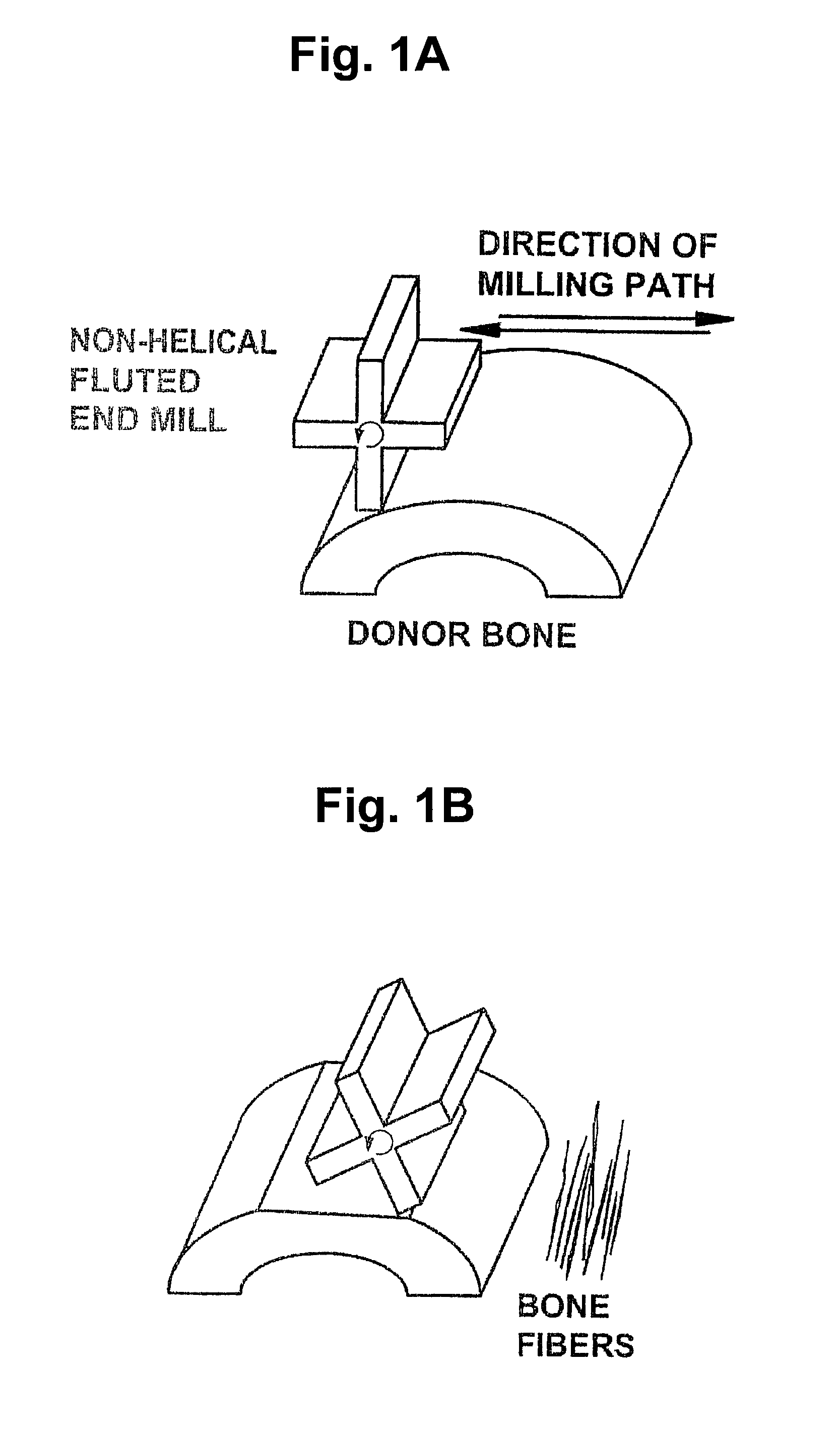Tissue-derived mesh for orthopedic regeneration
a tissue-derived mesh and orthopedic technology, applied in the field of tissue-derived implants for wound repair, can solve the problems of fractures and other orthopedic injuries that take a long time to heal, metal is significantly more stiff than bone, and bone is unable to support physiologic loading unaided,
- Summary
- Abstract
- Description
- Claims
- Application Information
AI Technical Summary
Benefits of technology
Problems solved by technology
Method used
Image
Examples
Embodiment Construction
[0039]In one embodiment, an implant is fabricated from a solid aggregate comprising tissue-derived particles or fragments from, for example, allograft bone or small intestinal submucosa. The aggregate is shaped as a one dimensional body or a two dimensional body. The tissue-derived particles may be combined with other tissues, naturally-derived or engineered fibers, or synthetic biocompatible materials. The tissue-derived particles and other materials in the aggregate may be chemically bonded or interwoven with each other, or both, to form a continuous network. The implant may be fabricated as a porous film or fiber and used in applications where a one or two-dimensional material is desired. The shape exploits the mechanical and physiological properties of three-dimensional tissues such as bone while providing planar and thread-like implants to surgeons as an alternative to large blocks or runny pastes.
Materials
[0040]Bone particles may be obtained by milling or shaving sequential su...
PUM
| Property | Measurement | Unit |
|---|---|---|
| width | aaaaa | aaaaa |
| width | aaaaa | aaaaa |
| width | aaaaa | aaaaa |
Abstract
Description
Claims
Application Information
 Login to View More
Login to View More - R&D
- Intellectual Property
- Life Sciences
- Materials
- Tech Scout
- Unparalleled Data Quality
- Higher Quality Content
- 60% Fewer Hallucinations
Browse by: Latest US Patents, China's latest patents, Technical Efficacy Thesaurus, Application Domain, Technology Topic, Popular Technical Reports.
© 2025 PatSnap. All rights reserved.Legal|Privacy policy|Modern Slavery Act Transparency Statement|Sitemap|About US| Contact US: help@patsnap.com


